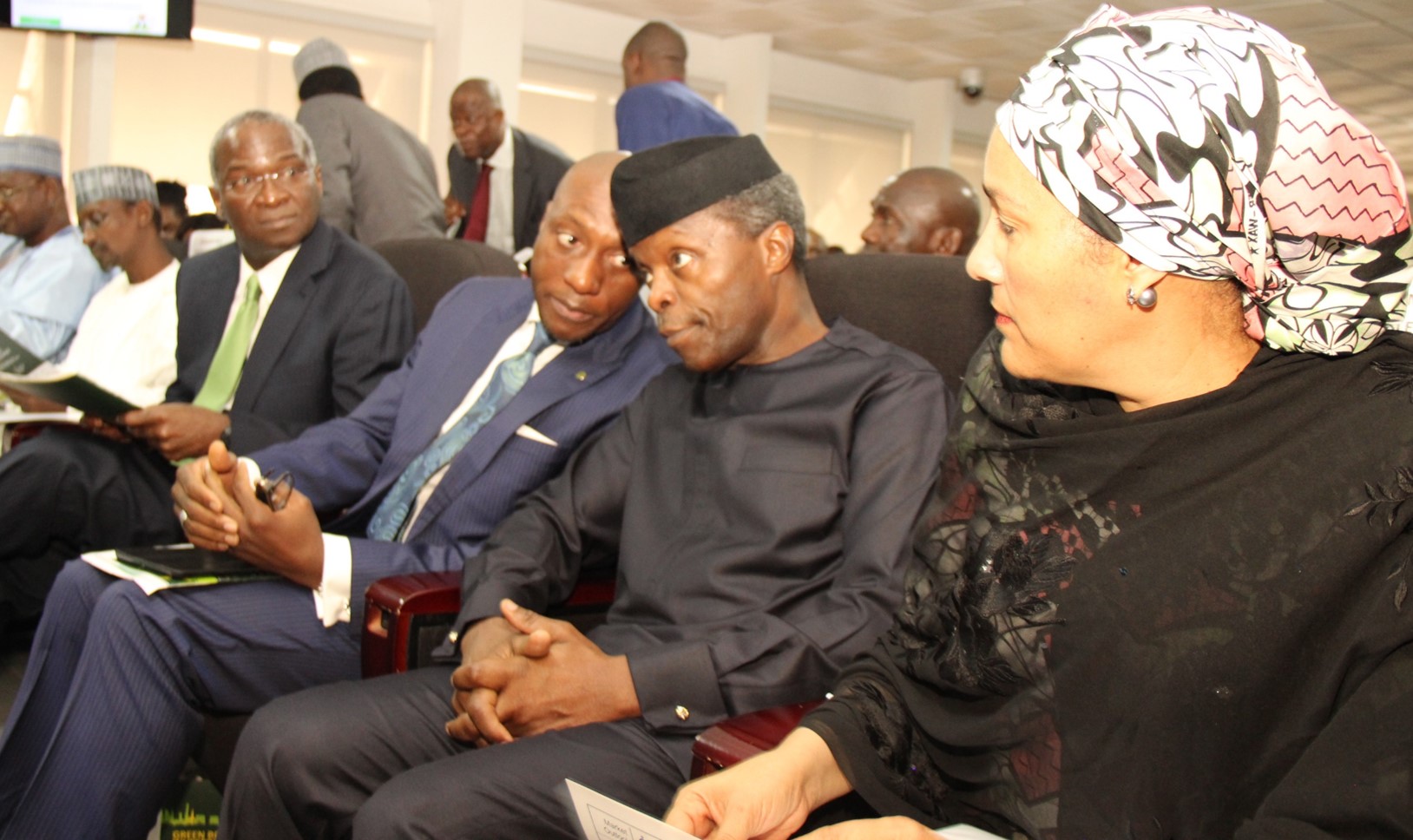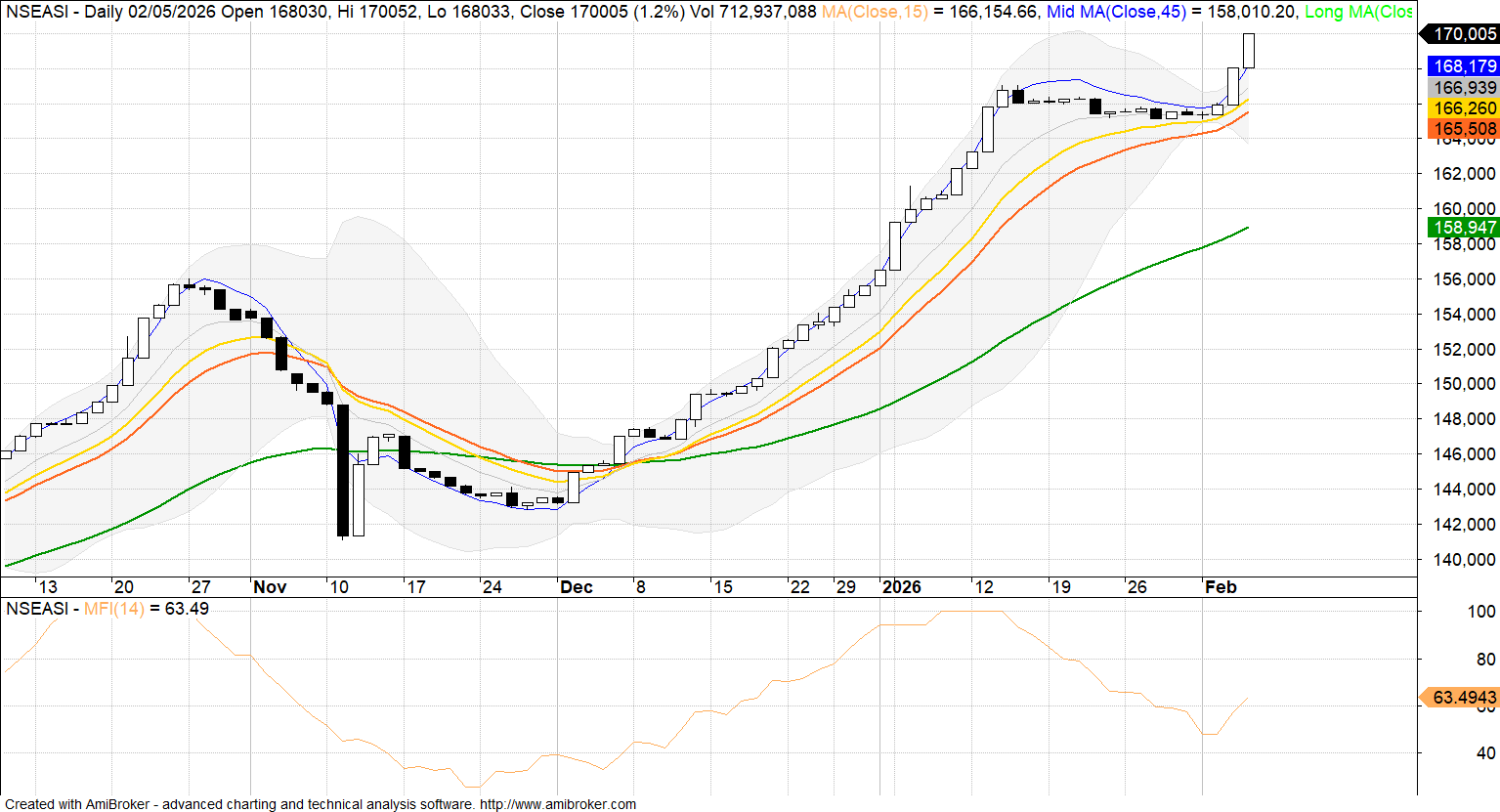
Photo Caption: From left Babatunde Fashola, Minister of Power, Works and Housing; Oscar Onyema, Chief Executive, The Nigerian Stock Exchange (NSE); Prof Yemi Osinbajo, Acting President of Nigeria; and Amina I. Mohammed, Minister of the Environment at the Green Bonds Capital Market and Investors Conference at the NSE, Lagos on Thursday.
The Federal Government, on Thursday said it hopes to attract funding from 91 global climate funds with commitments of about US$100bn yearly Green Bonds as one of the alternative sources of financing some aspects of its proposed Economic Recovery and Growth Plan (ERGP). The plan covers projects in sectors like power, transport and agriculture.
Welcoming participants to the Green Bond Conference held at the Nigeria Stock Exchange (NSE) in Lagos, Mrs. Amina Mohammed, Minister for the Environment, expressed the Federal Government’s readiness and commitment to diversify the economy, create Jobs, improve security and improve quality of life.
She urged operators in Nigeria’s domestic market to rally round issuances of the Green Bond, which she expects to be a huge success just like the recently issued $1 billion Euro Bonds, a testament “to us that the Nigerian Market is still viable.”
While urging the operators to make the domestic issuance of the Green Bond a reality, the Minister assured that it will on the long run, improve and support economic as well as financial system sustainability efforts by opening new avenues for new types of jobs, innovation and skills.
“Improve partnerships and collaboration with Private sector is key and we must continue to encourage it, Mrs. Mohammed added, noting that in the power sector for example, the target of the Muhammadu Buhari administration includes 13,000mega watts of off grid solar projects, just as the government anticipates “jobs of at least 10% of the ERGP’s target of 15million jobs by 2020.”
In transport, she said schemes are being implemented that would reduce the number of cars on the road by introducing and encouraging the use of buses, and “attracting climate resources to these interventions expands funding that will be available to our economy.”
All these, she continued, “are meant help us achieve a target of 450m tones in emissions reductions.“
“Green Bonds provides a new product with new credentials that investors can buy into which have gone through a vigorous process to ensure transparency, accountable use of funds and is environmentally friendly.”
The institutional arrangement around the Green Bonds process, she continued, has been established whilst some already existing processes will require some change, adding that the Inter-Ministerial Committee on Climate Change (ICCC) under the coordination of the Department of Climate Change in her Ministry has been the platform to interrogate the sector strategies, and has been very productive in providing a pipeline of projects that can keep this going beyond March.
“The Ministry of Environment itself will be part of the issuance process. It has provided the framework and guidelines, produced as part of the establishing processes essential to ensure that projects funded by green bonds have climate credentials. It will also ensure that the emissions are captured regularly and reported to investors and the appropriate global authorities. In addition, our apex regulator will need to adapt its listing rules to include green bonds.
“The Ministry of Finance through the Debt Management Office who are responsible for managing the process have been instrumental to laying solid foundations for this process. Other partners on the Government side – the Ministry of Budget and National Planning, The Office of the Accountant General, The Central Bank of Nigeria have all taken steps to guide this in the right direction and are making the necessary adjustment to processes to ensure this succeeds.











